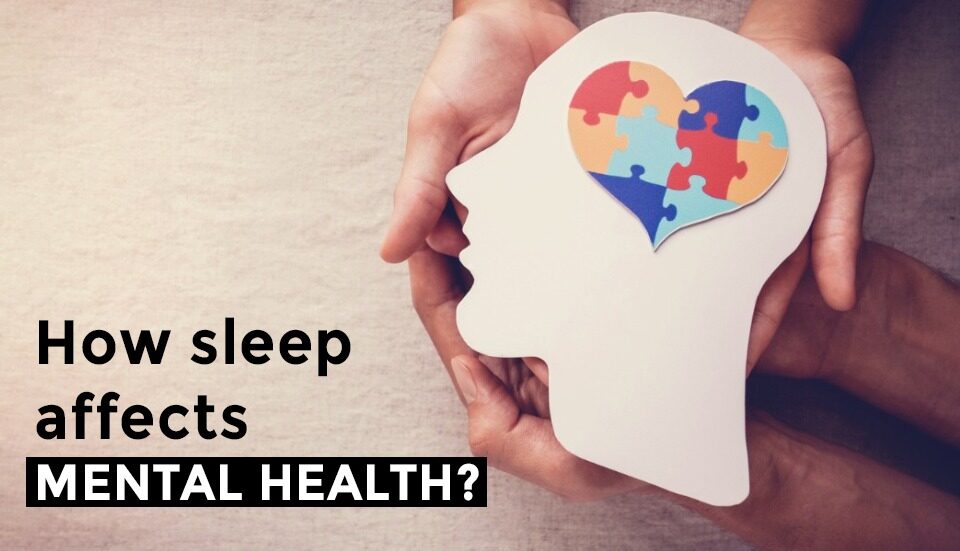A good laugh and a long sleep are the two best cures for anything. – Irish Proverb
True. Sleep and a good laugh can be your remedy in a stressful situation. Sleep is an essential part of our daily routine and vital for good health. As per research, less sleep gets associated with many illnesses. Poor sleep negatively impacts our hormones, exercise performance and brain function.
How much sleep is required by different age groups?
As per National Sleep Foundation guidelines,
- Adults need between 7-9 hours of sleep per night.
- Babies, young children and teens require even more sleep than adults.
- Older people over 65 years should get at least 7-8 hours of sleep per night.
How sleep builds the foundation for good health?
The body remains active while an individual is asleep. During this time, muscles get rebuilt that were worn out during the day. Also, toxins accumulated in the brain gets eliminated as well while one is asleep. Additionally, sleep is imperative as it plays a role in maintaining the internal clock. An individual needs to take adequate time for sleeping. Good sleep helps to manage the immune system functions, metabolic functions, memories and regulates body weight.
Impact of sleep deprivation on our body
Sleep deprivation can negatively impact an individual body’s response to various functions.
Short Term Problems:
- Sudden emotional changes causing anger, quick temper
- Less sleep impairs memory
- One can lose focus and concentration
- Poor sleep weakens the immune system
Long Term Effects:
- High blood pressure
- Diabetes
- Heart attack, heart failure or stroke
- Increased risk of developing Alzheimer disease
- Lack of sleep can impact mental health & wellbeing
Sleep and Mental Health
Sleep can impact the mind and how it works. A long-term sleep problem can harm the mental health of an individual. Also, poor sleep can worsen your depression or anxiety. In cases of severe sleep deprivation, many mental issues can arise. Some people show symptoms of psychosis, hallucinations and disordered thinking when they are awake for days at a time. However, few have a combination of mental health and sleep concerns. One can treat sleep problems and ease mental health symptoms. In other ways, one can improve their sleep issues to get the mental health on track.
Common Mental Health Concerns:
Depression
Poor sleep can worsen symptoms of depression. People who have clinical depression suffer from sleep problems. The common complaint is ‘insomnia’ which affects the person’s ability to sleep. People with depression have sleep apnea (breathing stops for short periods).
Anxiety
It’s known that more than half of people who have anxiety also face insomnia. There is a strong connection between anxiety and sleeping problems. When one is constantly worrying and in fear, it creates a hyperarousal state where the mind is racing, a great contributor to insomnia. Sleep problems are not just a result of anxiety, because as per research, poor sleep activates anxiety signs in people who have a high risk for it.
Bipolar disorder
Under manic periods, people with bipolar disorder are unable to sleep. However, when they are depressed, they sleep too much. Less sleep could also cause symptoms of mania or hypomania. They have insomnia, irregular sleep-wake cycles and even nightmares.
Stress
Poor sleep can cause mood changes, irritation, anger, and one can face difficulty in facing minor stresses of regular life. Poor sleep can also take a turn as one of the stress.
Ways to Improve Sleep and Mental Health
Mental issues can disrupt sleep & sleep deprivation can affect mental health. The treatment for both these issues can go hand in hand. A few approaches to help people with sleep and mental health issues are:
Cognitive Behavioural Therapy
Do talk therapy or cognitive behavioural therapy, a type of counselling. It examines patterns of thinking and working to reformulate negative thoughts in new ways possible.
Tips to Improve Sleep Habits
Work on your sleep hygiene. One must follow healthy habits to reduce sleep disruptions.
- Set a sleep & wake up schedule
- Practice relaxation techniques before bedtime
- Say no to alcohol, tobacco, and late evening caffeine
- Put away electronic gadgets one hour before sleeping
- Exercise & meditate regularly
- Use comfortable mattress, pillows and bedding
- Block excess light and sound in your bedroom
Consult your doctor as soon as possible for severe sleep deprivation symptoms!
The views and opinions expressed, and assumptions & analysis presented in this content piece are those of the author(s) and do not necessarily reflect the official policy or position of any other agency, organization, employer or company. The information, including but not limited to, text, graphics, images and other material contained on this website are for informational purposes only. The purpose of this website is to promote broad consumer understanding and knowledge of various health topics. It is not intended to be a substitute for professional medical advice, diagnosis or treatment. Always seek the advice of your physician or other qualified health care provider with any questions you may have regarding a medical condition or treatment and before undertaking a new health care regimen, and never disregard professional medical advice or delay in seeking it because of something you have read on this website.




